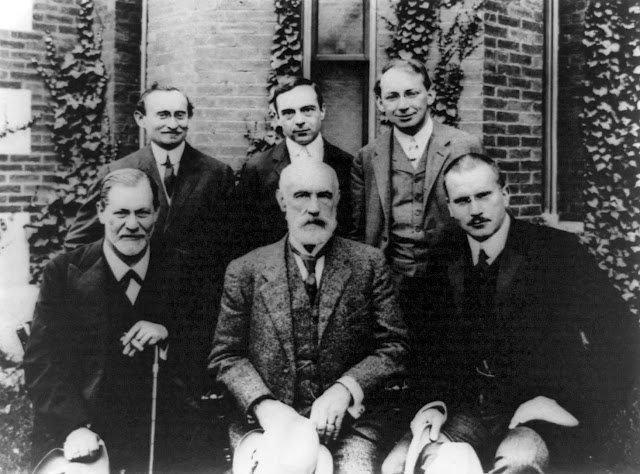Sigmund Freud (1856 – 1939) Austrian psychoanalyst
Sigmund Freud biography
Sigmund Freud was an Austrian neurologist and the founder of psychoanalysis, a clinical method for treating psychopathology through dialogue between the patient and the psychoanalyst. His work has had a profound impact on modern psychology, as well as on literature, culture, and social theory. In this documentary, we will explore the life and legacy of Sigmund Freud, his contributions to the field of psychology, and his controversial ideas that continue to inspire debate and discussion to this day.
Early Life:
Sigmund Freud was born on May 6th, 1856 in Freiberg, Moravia, in what is now the Czech Republic. His father, Jakob Freud, was a wool merchant and his mother, Amalia, was a housewife. Freud was the oldest of eight siblings and his family moved to Vienna when he was four years old.
Education and Career:
Freud studied medicine at the University of Vienna and became interested in psychiatry during his studies. After graduation, he worked at the Vienna General Hospital where he focused on nervous disorders. He also spent time studying with Jean-Martin Charcot in Paris, where he learned about hypnosis and its use in treating hysteria.In 1896, Freud published his groundbreaking work, The Interpretation of Dreams, which laid the foundation for psychoanalytic theory. He went on to develop his ideas on the structure of the human mind, the unconscious, and the role of sexuality in human behavior.Freud faced opposition from many of his colleagues in the medical community, who rejected his ideas as unscientific and lacking empirical evidence. However, he continued to develop his theories and founded the International Psychoanalytical Association in 1910.
Personal Life:
Freud married Martha Bernays in 1886 and they had six children together. His relationship with his wife was tumultuous at times, but they remained together until his death in 1939.Freud's health began to decline in the 1920s, and he suffered from cancer of the jaw for many years. He underwent multiple surgeries and had to wear a prosthesis for the rest of his life, which made it difficult for him to speak and eat.
Legacy:
Freud's theories and methods continue to be the subject of intense debate and criticism, but his influence on modern psychology cannot be denied. He pioneered the use of talk therapy in treating mental illness and his ideas about the unconscious mind and the role of sexuality in human behavior have had a lasting impact on popular culture. Freud's ideas also inspired a new generation of psychoanalysts, including Carl Jung, Alfred Adler, and Melanie Klein, who built upon his work and expanded the field of psychoanalysis.
Conclusion:
Sigmund Freud was a complex and controversial figure whose ideas continue to inspire debate and discussion to this day. His work has had a profound impact on modern psychology, as well as on literature, culture, and social theory. While he faced significant opposition and criticism during his lifetime, his contributions to the field of psychology have stood the test of time and continue to influence our understanding of the human mind and behavior.










No comments